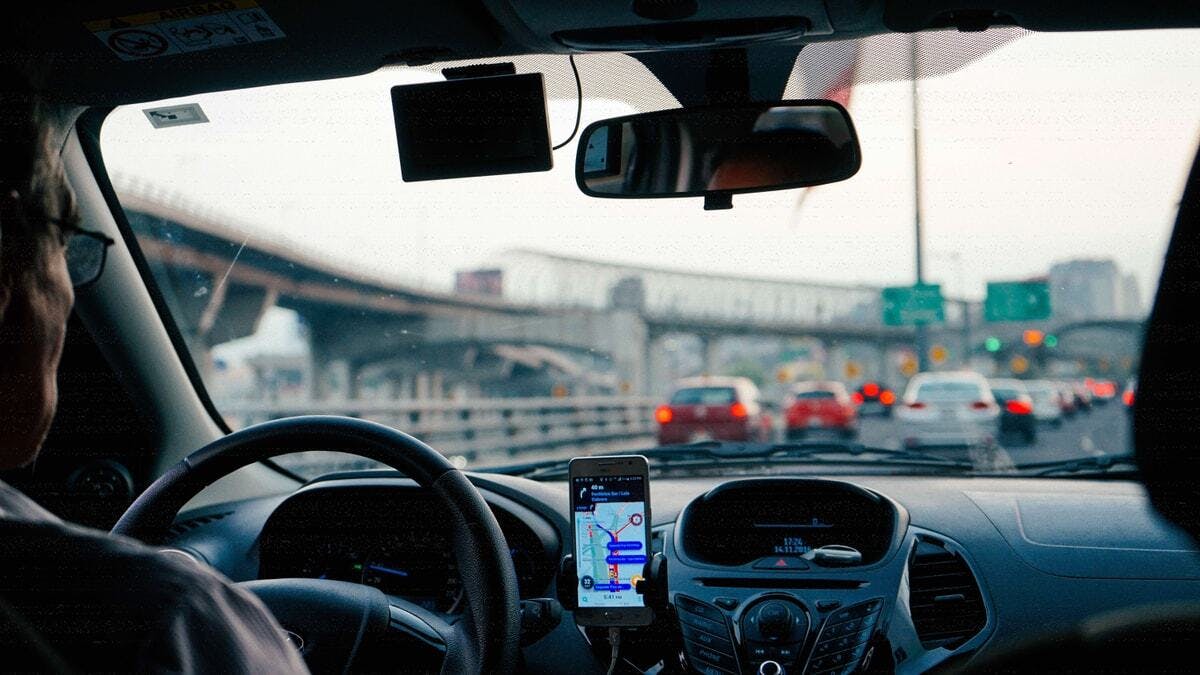5 Driving Habits that Can Help You Avoid Aggressive Drivers
Have you ever experienced road rage (aka aggressive driving)?
Road rage behaviors range from tailgating, speeding, and cutting off cars to yelling, honking, intentionally hitting another vehicle and other violent behavior.
A 2022 driving habits survey we conducted found that:
49% of drivers surveyed have experienced road rage.
71% of drivers surveyed said road rage from other drivers makes them anxious to drive.
65% of those that have seen road rage from other drivers have felt unsafe due to another driver’s road rage.
The good news is you are literally in the driver’s seat. The following 5 habits can help you avoid aggressive drivers and also avoid becoming a contributor to road rage.
Driving Habit #1: Plan Ahead
Half of the survey respondents who said they have experienced road rage, said they are most likely to experience it in the morning on their way to work or school. Mornings are a flurry of getting kids to school and getting to work on time, and this can cause people to drive more aggressively than they might if they had the cushion of extra time.
How can you avoid becoming a contributor of morning road rage?
Plan out your route before you leave.
Pack lunches the night before, set your work bag by the front door.
Make sure you know where your keys are.
Leave earlier.
These little changes to your routine give you extra time in the morning. That’s time you can use to let people merge in front of you, drive the speed limit, and slow down at yellow lights. Feeling like you aren’t in a hurry will put you in a better mood and help you to have more patience…which will help you with driving habit #2.
Driving Habit #2: Stay Calm
Work anxiety, traffic, and personal stress are common triggers of road rage. Of the survey respondents who said their road rage is triggered by anxiety:
63% said that work-related stress is a main factor.
52% said that traffic congestion is a main factor.
49% said that stress in their personal life is a main factor.
How can you stay calm behind the wheel?
Take a few deep breaths before you start driving. Set an intention to be patient and give other drivers the benefit of the doubt.
Listen to an audio book, podcast, or music that you enjoy.
Give yourself plenty of time to get where you’re going (see Driving Habit #1). You’re not in a race. Take your time and enjoy the ride.
Driving Habit #3: Don’t Honk
How and when to honk:
Tap your horn (lightly) if you need to warn a driver about something (like to prevent an accident from happening).
Don’t honk just because you feel you’ve been wronged by another driver. This may actually cause someone else to become angry and start driving aggressively.
You may have to really fight your urge to honk the next time someone cuts you off on the freeway. Just take a deep breath and give that person the benefit of the doubt. Which brings us to Habit #4…
Driving Habit #4: Take the High Road
Taking the high road can be hard. It’s much easier to shake your fist and honk your horn at an aggressive driver, but all that does is raise your blood pressure, spread negativity, and potentially cause that driver to escalate their aggressive driving behaviors.
How can you take the high road?
Don’t tailgate.
Don’t flash your headlights at a car in anger.
Don’t yell or make inappropriate hand gestures.
Don’t make menacing eye contact with the other driver.
Don’t take another driver’s behavior personally.
Don’t take matters into your own hands. Report aggressive drivers to your state’s aggressive driver hotline or to the police.
Habit #5: Drive Defensively
This may be the most important driving habit when it comes to avoiding aggressive drivers.
You can avoid aggressive drivers and avoid becoming a contributor of road rage by driving defensively.
This means:
Only using the left lane for passing
Being cautious and thoughtful of other drivers
Merging politely and letting others merge
Driving the speed limit
Giving angry drivers room instead of tailgating and provoking them
Of the drivers we surveyed, 72% said they changed their driving behaviors as a direct result of seeing road rage from other drivers, and of that group 47% said that change was due to taking a defensive driving courseDefensive Driving. Defensive driving will teach you everything you need to know to avoid being in an aggressive driving situation.
You can’t control the other drivers you may encounter, but adopting these five driving habits will help ensure you are doing everything you can to avoid aggressive drivers and avoid becoming one yourself.
Take Your Defensive Driving Course Online

7 Surprising Signs of Aggressive Driving
What is the difference between being an assertive and aggressive driver? It's not simply to road rage or not to road rage. Not knowing can increase your insurance costs and possibly endanger lives. Are you constantly over the speed limit? Does yellow mean go faster? There are over 5 million car accidents annually. Know the facts. Drive safely. Enjoy the ride.

How Defensive Driving Schools Can Curb Aggressive Driving
Dangerous drivers are everywhere and deadly--and they are not just road ragers. Here are some defensive driving tips and traits to help you and your passengers stay safe.

Drugged, Distracted Driving & Holiday Travel: A Dangerous Mix
Keep these holiday travel safety tips in mind as you hit the road with your family—and among millions of other drivers.
Looking for more driving resources?
Enter your email for deals, study materials, car maintenance tips, insurance savings, and more.

